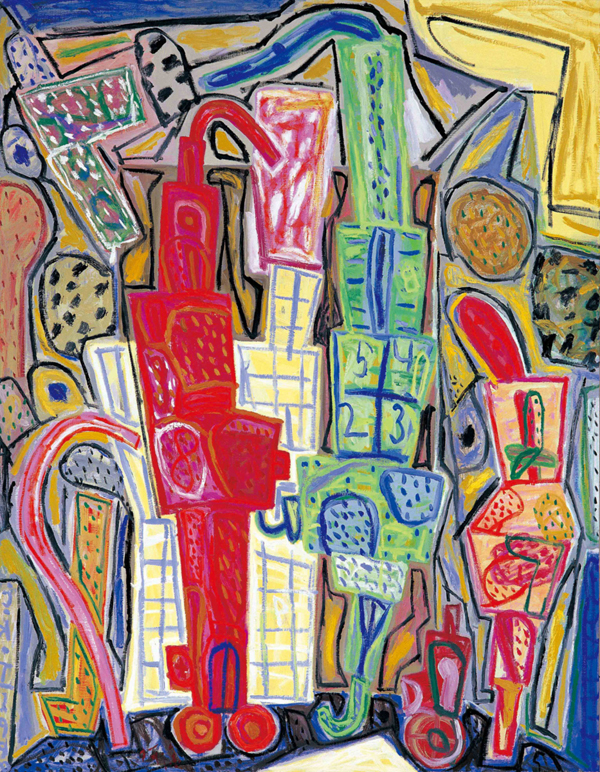

Lot 142
5432 Green Man Red Woman
TSENG Ching-kan (Taiwanese, 1958)
1995
Oil on canvas
116.5 x 90.5 cm
Estimate
TWD 320,000-360,000
HKD 75,500-85,000
USD 9,700-10,900
Sold Price
TWD 708,000
HKD 170,891
USD 21,943
Signature
+ OVERVIEW
The Wonderful World of Animal Instincts - Huang Bao-ping
Tseng Ching-kan once discussed his works. Though it is simple description, it is the best way to approach his creations. He said, "ometimes, I invent a story and envision it. Sometimes, I create some characters and give them a story. Sometimes, I look at my works and create a story. Sometimes, I combine many styles to create plays on words."
The animals, robots and 'nknown objects'Tseng depicts repeatedly are the fantastic wizards in his mind which appear on his canvas as if they were dancing freely on the stage. As Tseng describes, these wizards make up different parts of the story. They may "tage"the story or the audience creates one at random. It is all extemporaneous. Audiences who have seen Tseng' works must have been immersed in his style made up of sharp colors and vivid styles. The aim of using techniques resembling graffiti is to allow audiences whose vision and minds have been contaminated by the outside world to regain the truth of simplicity and life.
Though the time-space where Tseng lives is different from that of Dubuffet and Miro, all of them must face the issue of human nature. Behind the vivid and lively scenarios in Tseng' works hide his pessimism and discontent with the twists and turns in life. However, he presents his imaginative world in the style of children' pictures like Dubuffet. Though many believe that anybody can draw these works like children pictures or primitive art, thinking in reverse is a different matter because Dubuffet, Miro and Tseng are well educated and deeply influenced by social etiquette. Therefore, it is not so simple as one may imagine to get rid of elements that have long existed in the attempt to return to the primitive and pure aspect of things. Furthermore, it is even more difficult to make the graffitilike creations look natural in the eyes of audiences.
When looking at Tseng' works, we can see how he depicts the purity of childs play with a kind of mature technique which bears no mark of artificiality but the attraction of fun and excitement as part of a random structure.
The 20th & 21st Century Chinese Art, Korean Contemporary Art
Ravenel Autumn Auction 2007
Sunday, December 2, 2007, 12:00am
